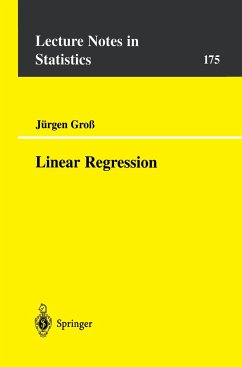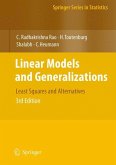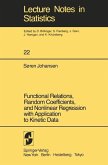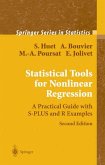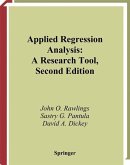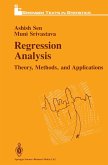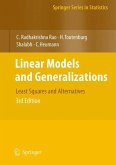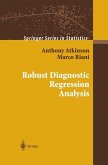This systematic overview for beginners, converts to LINUX, and system administrators gives full details of operating system architecture, LINUX basic commands, and typical development and application packages. Fred Hantelmann focuses on the LST distribution (Power LINUX) to provide a quick route to practical deployment.
In linear regression the ordinary least squares estimator plays a central role and sometimes one may get the impression that it is the only reasonable and applicable estimator available. Nonetheless, there exists a variety of alterna tives, proving useful in specific situations. Purpose and Scope. This book aims at presenting a comprehensive survey of different point estimation methods in linear regression, along with the the oretical background on a advanced courses level. Besides its possible use as a companion for specific courses, it should be helpful for purposes of further reading, giving detailed explanations on many topics in this field. Numerical examples and graphics will aid to deepen the insight into the specifics of the presented methods. For the purpose of self-containment, the basic theory of linear regression models and least squares is presented. The fundamentals of decision theory and matrix algebra are also included. Some prior basic knowledge, however, appearsto be necessary for easy reading and understanding.
In linear regression the ordinary least squares estimator plays a central role and sometimes one may get the impression that it is the only reasonable and applicable estimator available. Nonetheless, there exists a variety of alterna tives, proving useful in specific situations. Purpose and Scope. This book aims at presenting a comprehensive survey of different point estimation methods in linear regression, along with the the oretical background on a advanced courses level. Besides its possible use as a companion for specific courses, it should be helpful for purposes of further reading, giving detailed explanations on many topics in this field. Numerical examples and graphics will aid to deepen the insight into the specifics of the presented methods. For the purpose of self-containment, the basic theory of linear regression models and least squares is presented. The fundamentals of decision theory and matrix algebra are also included. Some prior basic knowledge, however, appearsto be necessary for easy reading and understanding.

